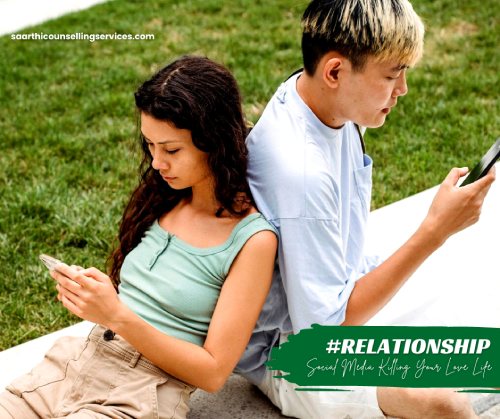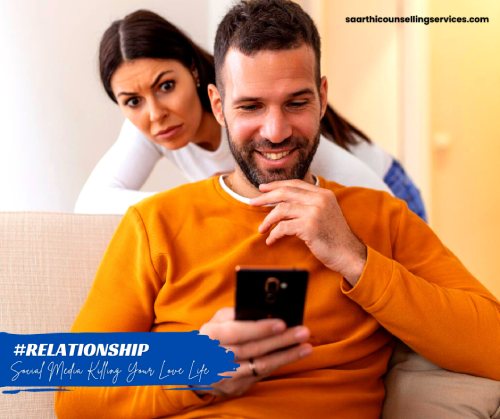Yet Very Stable Relationship According to Couples Therapist Shivani Sadhoo
Unluckily, relationship skills and self-care are never taught in school. Yet, these two aspects and life necessities can certainly have a huge effect on any person’s happiness and success in life.
And things become even worse, amidst the chaotic and hectic modern-day life, where most people don’t even have quality time for themselves. So, just imagine how those people can have time for others. And this is the case with several couples too, where they simply have no time to contribute anything to their relationship.
All, these later contribute to arguments, and quarrels, eventually leading to quitting the relationship. On the other hand, we have couples who even in the midst of all the chaos and dramas are living a dream-like relationship that is sometimes even hard to imagine, if that actually is possible. Relationship coach and couples counselor Shivani says, this is very much possible to have a loving and happy relationship.
Through this blog, India’s eminent couple’s therapist Shivani Misri Sadhoo shares 5 such ingredients that are needed for nurturing a super romantic, yet absolutely stable relationship.
Knowing yourself
In the process of life, several of us learn to hide our feelings, strengths, desires, and personal goals. If those are hidden from ourselves, we cannot show up as complete people in a relationship. Thus, taking time to look inside of yourself and visit the hidden areas of your feelings, experiences and desires help you to show up as a genuine and honest person.
Too many of you are taught by well-meaning figures to bury your feelings and to be ashamed of your dreams and to simply plain keep others happy. It never works in a relationship. So mostly as Shivani says she hears from couples: “I just do not know who he or she is. I get such mixed signals or no response at all about where we want to go together, in life.”
In knowing yourselves, you do know what you personally need to keep on your own pathway towards success and happiness and then you can communicate that to your partners. It all starts with yourself “Do what you love!”
Practicing self-care
Do you know the number of people who are simply plain burned out in life, lately? You have been tested in your abilities to survive and adapt during certain current tough challenges here in your life. Being the best version of yourself in a relationship means you know how to and you do all it takes to be healthy in mind, body, and spirit.
When you do not feel good, or you are too stressed or lack faith in yourself or in the future, you cannot be a good partner to anyone. You all know the steps to take for good self-care, but do you really practice these behaviors? As human beings, you need good sleep, exercise, healthy food, time outdoors in nature, adventures, and fun, constant learning, and a belief in something greater than yourself.
Whatever your religious or spiritual thought process may be, spending time with the practices will enhance your vibrational level and lead you to better self-care and creativity.
Communicating in a positive way
As in any relationship, differences will arise. And in fact, in relationships with the biggest differences, growth and deeper learning takes place in an attempt to relate to one another. So enjoy the differences and learn to try to understand each other and those differences.
If you can learn to converse from your heart rather than putting your partner on the defensive, overcoming differences and learning to be more open can truly be fun. For years you have been learning about “I statements.”
They are truly heart statements. Here is an instance. Your partner comes home late. A typical reaction would be a question like “Why are you so late while coming home?” The implication here is that the individual is in trouble or has misbehaved.
A heart statement would be “Oh I really miss having time with you and I get sad or worried when you reach home later than I expected.” Observe how the communication is about caring, about loving the other one instead of interrogating the partner.
Letting do-overs
When conflict and misunderstanding occur in a relationship, it is mostly difficult to practice positive communication. In those situations when buttons are being pushed harder and frustration or anger grows, take a break from the discussion.
During that break genuinely try to imagine what your partner is looking to communicate and where he or she is coming from. Then go back to your inner communication and approach with the aim of understanding, accepting, and loving the other person.
Any one of you can call a Do Over or a Break as things get even slightly heated. In calling a break, again bring this back to yourself with statements such as” I genuinely feel bad with how this is going and I wish to find a better way to understand and support you.
How about if we try the same discussion again when we both feel prepared?” There is so much respect and love in that manner of dealing with misunderstandings or differences.
Keeping passion and excitement alive
As you keep growing in your individual passions and your learning, you bring excitement into a relationship. This journey is meant for learning and growth and not retreating into comfort or any mundane.
Fear might create a desire to protect yourself from facing life’s tough challenges head-on. The only two fears everyone is born with are fear of falling and fear of loud noises. The remaining ones have learned fears. The good thing about learned fears is that you can unlearn those fears by facing them when that opportunity arises.
As you individually face your fears, you create adventure, fun, and stimulation in the relationship. The passion enhances in response to those behaviors. Words such as “this is interesting” or “challenge accepted” can help assist you in your self-talk as you take on the challenges life gives you. Think of the energy you bring home to the relationship as you keep moving ahead in life and following your dreams.
As you could see, the best relationships need self-focus and an honoring of your true selves. Then when you show up to your partner an incredibly positive and fulfilling relationship will take place.










